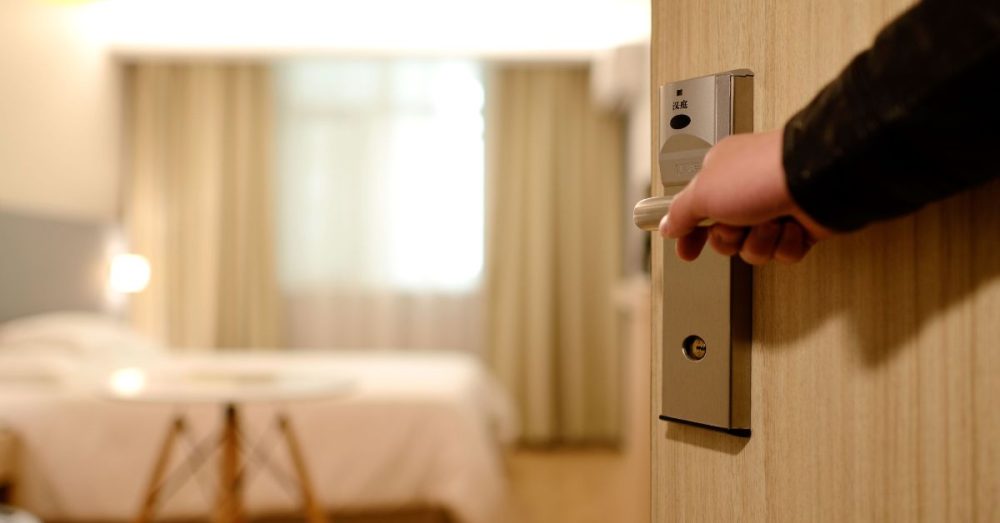In 2022, a Dallas teen was lured away from a Dallas Mavericks game, drugged, sexually assaulted, and transported to Oklahoma City, where she was sex trafficked in a hotel for over a week.
It is not an uncommon ploy for a trafficker to take their victims and hide them in a hotel or motel. In fact, it is one of the most common places where sex trafficking occurs.
There are two different kinds of sex trafficking in hotels: in-call services and out-call services.
An in-call service happens when a trafficker books a room at the hotel or motel, and buyers come into the room throughout the day and night to use the person who is being trafficked.
“That can be a one-star hotel to a five-star hotel,” said Paola Chavez Reyes, outreach and training program director at nonprofit Unbound Now.
An out-call service is when the buyer reserves the room. This can be someone passing through town for business, who just got off work, or who lives in the city and booked the room.
“I wouldn’t necessarily say that they’re looking for somebody that’s trafficked, but rather looking to buy sexual acts from somebody,” said Reyes to The Dallas Express.
Under the Trafficking Victims Prevention and Protection Reauthorization Act of 2022, hotels can be held liable for trafficking that occurs on their grounds, whether they are aware of it or not, as long as they are benefitting from that service in some way.
This act led to a slew of lawsuits against hotels. The hotel where the teen that was taken from the Dallas Mavericks game was held, Texas-owned Extended Stay America OKC Hotel, was sued following her rescue, as previously reported by The Dallas Express. According to a press release, the hotel was “known for pimps and prostitutes.”
“On one occasion, a hotel employee saw the 15-year-old victim crying in the lobby while two adult men escorted her to their room and yet did nothing,” the release claimed. “Other times, men patrolled the hotel hallway with an AK-47 style assault rifle.”
Additionally, a trafficking survivor under the alias “Jane Doe” sued several major hotel chains, including Marriott, Hilton, and Red Roof Inn. The lawsuit alleged that the hotels “allowed” the trafficking to occur on its premises by ignoring signs of trafficking, such as frequent male visitors to one room.
Unbound Now works alongside hotels in North Texas to train staff on identifying and reporting suspicious behavior. Reyes noted that a common red flag is when a person who is experiencing trafficking books a room and provides ID, but their trafficker is answering all the questions for them. Another red flag is paying with cash or a pre-loaded credit card or reserving multiple rooms for multiple people.
Hotel workers should be on the lookout for minors and diligently check IDs, whether at the front desk, hotel restaurant, or bar. Hotel staff should also be aware when a guest requests a lot of extra sheets and towels or when people are left in the hotel room for long periods of time.
Under House Bill 390, a hotel or temporary lodging destination must have signage that displays the National Human Trafficking Hotline. Tarrant County, Dallas, and Fort Worth police have dedicated human trafficking units to assist hotels when staff becomes suspicious that one of their guests may be trafficked.
“I think we still have a long way to go; there’s still a lot of opportunity,” said Reyes. “I think we’ve made a lot of progress, and I don’t want to lose sight of that. There is a lot more that we can grow in, and we’re happy to come alongside different chains, hotels or motels to make sure that their staff is trained.”
Unbound Now will be hosting a “Not in My Hotel” project in July of 2025, where volunteers help educate hotel staff on how to be aware of sex trafficking and what proper steps to take if trafficking is suspected.


